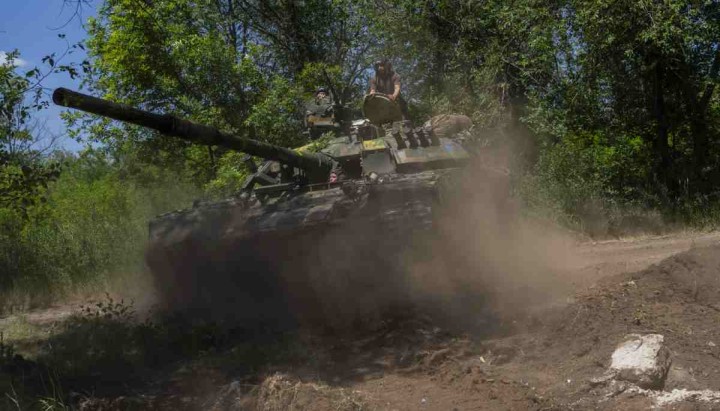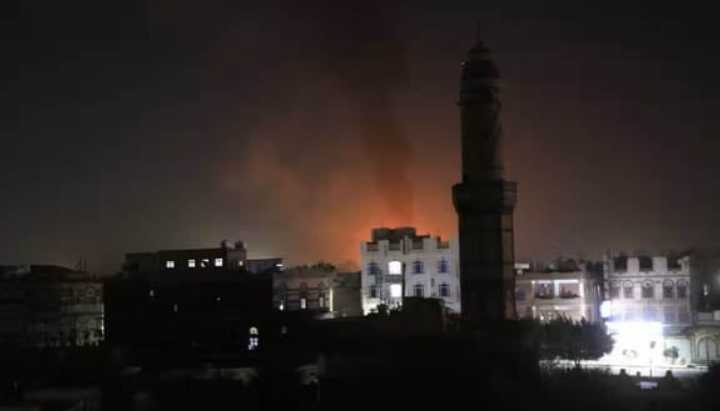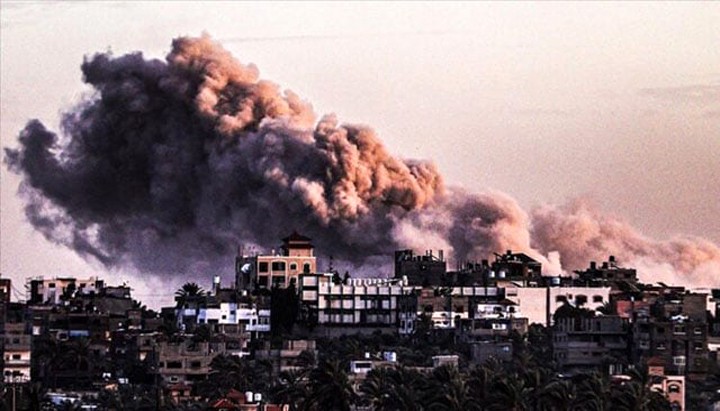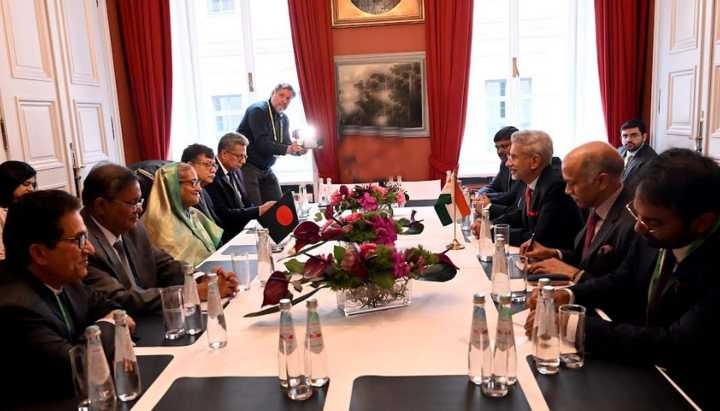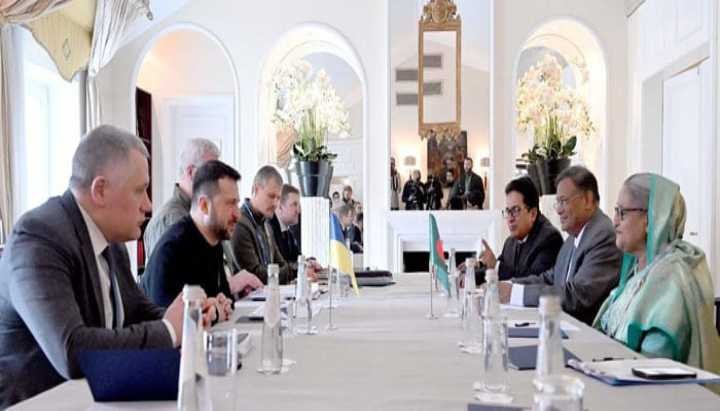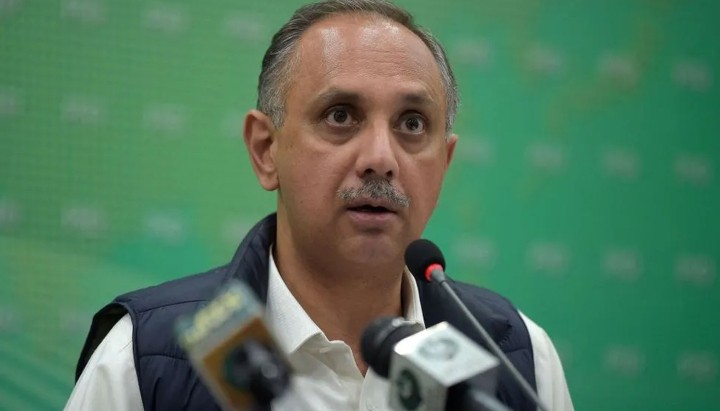Russia has begun turning over the bodies of Ukrainian
fighters killed at the Azovstal steelworks, the fortress-like plant in the
destroyed city of Mariupol where their last-ditch stand became a symbol of
resistance against Moscow’s invasion.
Dozens of the dead taken from the bombed-out mill’s now
Russian-occupied ruins have been transferred to the Ukrainian capital, Kyiv,
where DNA testing is underway to identify the remains, according to both a
military leader and a spokeswoman for the Azov Regiment.
The Azov Regiment was among the Ukrainian units that
defended the steelworks for nearly three months before surrendering in May
under relentless Russian attacks from the ground, sea and air.
It was unclear how many bodies might remain at the plant.
Meanwhile, Russian forces continued to fight for control of
Sievierodonetsk, an eastern Ukrainian city that is key to Moscow’s goal of
completing the capture of the industrial Donbas region.
President Volodymyr Zelenskyy said Ukrainian forces were
holding their positions in the city amid fierce fighting in the streets as
Russia tries to deploy more forces.
“But it is the 103rd day, and the Ukrainian Donbas stands.
It stands firmly,” he said in his nightly address to the nation.
Zelenskyy also said Moscow’s forces intend to take the southeastern
city of Zaporizhzhia, home to more than 700,000 people, a move that could
severely weaken Ukraine’s standing and allow the Russian military to advance
closer to the center of the country.
“In the Zaporizhzhia region ... there is the most
threatening situation there,” Zelenskyy said.
The Ukrainian fighters’ dogged defense of the steel mill
frustrated the Kremlin’s objective of quickly capturing Mariupol and tied down
Russian forces in the strategic port city.
The defenders’ fate in Russian hands is shrouded in
uncertainty. Zelenskyy said more than than 2,500 fighters from the plant are
being held prisoner, and Ukraine is working to win their release.
The recovery of their remains from the Azovstal ruins has
not been announced by the Ukrainian government, and Russian officials have not
commented. But relatives of soldiers killed at the plant discussed the process
with The Associated Press.
Ukraine on Saturday announced the first officially confirmed
swap of its military dead since the war began. It said the two sides exchanged
320 bodies in all, each getting back 160 sets of remains. The swap took place
Thursday on the front line in the Zaporizhzhia region.
Anna Holovko, a spokeswoman for the Azov Regiment, said all
160 of the Ukrainian bodies turned over by the Russians were from the Azovstal
ruins. She said that at least 52 of those bodies are thought to be the remains
of Azov Regiment soldiers.
Maksym Zhorin, a former Azov Regiment leader now
co-commanding a Kyiv-based military unit, confirmed that bodies from the steel
plant were among those exchanged.
The brother of an Azov fighter missing and feared dead in
the steelworks told the AP that at least two trucks of bodies from Azovstal were
transferred to a military hospital in Kyiv for identification.
Viacheslav Drofa said the remains of his elder brother,
Dmitry Lisen, did not appear to be among those recovered so far. He added that
some of the dead were severely burned.
The mother of a soldier killed in an airstrike on the plant
said the Azov Regiment telephoned her and said her son’s body might be among
those transferred to Kyiv. The mother did not want her or her son to be
identified by name, saying she feared that discussing the recovery process
might disrupt it.
She tearfully referred to her son as a hero. “It’s important
for me to bury him in our Ukrainian land,” she said.
In other developments Monday, Ukraine’s efforts to fight off
Russia's invasion loomed large over D-Day commemorations in France, where the
78th anniversary of the Normandy invasion was marked.
“The fight in Ukraine is about honoring these veterans of
World War II,” Army Gen. Mark Milley, chairman of the U.S. Joint Chiefs of
Staff, said at the American Cemetery of Colleville-sur-Mer, overlooking Omaha
Beach in Normandy.
He added, “It’s about maintaining the so-called global
rules-based international order that was established by the dead who are buried
here at this cemetery.”
American D-Day veteran Charles Shay, 97, was at Omaha Beach
to mark the the anniversary of the June 6, 1944, landings and pay tribute to
those who fell that day. Asked about the war raging on the European continent,
Shay said, “It is a very sad situation.”
“In 1944 I landed on these beaches, and we thought we’d
bring peace to the world. But it’s not possible,” he added.
Meanwhile, the president of Ukraine’s separatist Donetsk
People’s Republic said that the pro-Moscow region is putting on trial three
British men alleged to have been mercenaries for Ukraine. If convicted on the
charges, including of trying to seize power, the men could get the death
penalty.
Russian President Vladimir Putin signed a decree granting
lump-sum payments of 5 million rubles ($81,000) to families of Russian National
Guard members who die in Ukraine. Guard members have taken part in such
operations as the seizure of the Chernobyl nuclear power plant. The lump sum is
roughly six times the average annual Russian salary.
On the battlefield, Russian warplanes fired long-range
missiles to destroy a plant on the edge of the town of Lozova in the
northeastern Kharkiv region that was repairing armored vehicles, Russian
Defense Ministry spokesman Maj. Gen. Igor Konashenkov said.
Russian aircraft hit 73 areas of concentration of Ukrainian
troops and equipment, while Russian artillery struck 431 military targets,
Konashenkov said. His claims could not be independently verified.
Ukrainian forces put up resistance in Sievierodonetsk and
other areas.
“There are more of them, they are more powerful, but we have
every chance to fight on this direction,” Zelenskyy said.
Ukrainian artillery fire could be heard outside the city of
Bakhmut, southwest of Sievierodonetsk.
Ukrainian tanks moved back and forth from the front line,
carefully hiding under trees after firing at Russian positions. One of the
tanks was a T-80 captured from Russian forces. Its crew hacked bushes with
hatchets and covered the vehicle and its main gun with branches.
- AP/UNB


